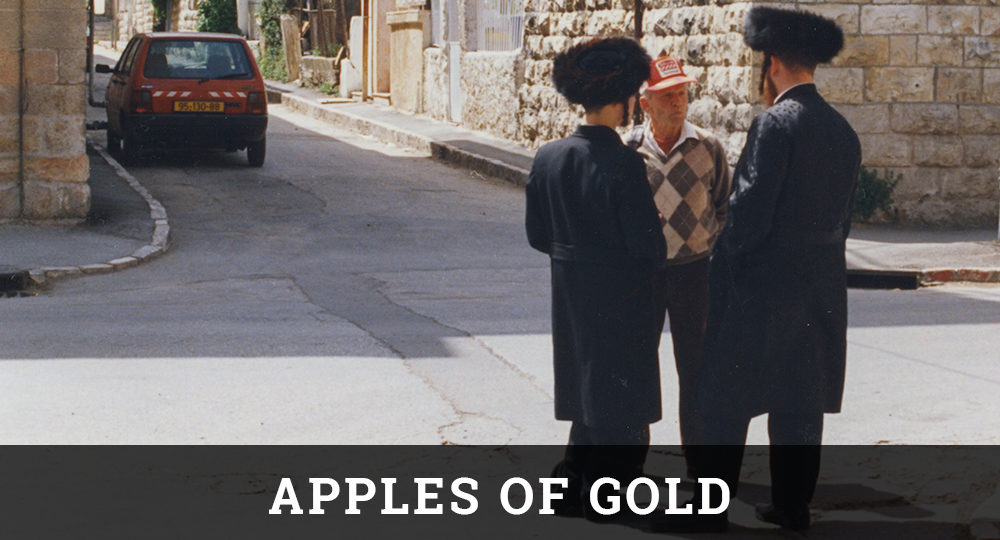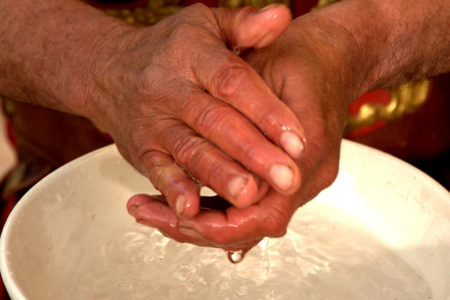Zvi Jun/Jul 1999
I recently received a telephone call informing me that a dear friend of our family was sick in the hospital, so my wife and I immediately went to see her. Visiting a sick person in the hospital is not like going to a wedding. There are no sounds of joy, only voices of pain and suffering. Unfortunately, however, there are mercenary people, even in hospitals, who want only to make money, regardless of the situation.
As my wife and I were visiting with our friend, a young rabbi approached the woman in the next bed and asked, “Would you like me to say a special prayer for you? Then you will feel much better, and quickly!” “Oh yes,” she replied. “I would be glad if you could do something to take away my pain.” The rabbi then told her, “You should be very happy because you now have a great privilege. You see, I am a Cohen [one from the high priestly line of Aaron], and if a Cohen pronounces his special blessing on you, you will immediately be written in the book of life.” He then began to pray the priestly benediction.
I could not believe what I was seeing and hearing, but I remained quiet, waiting for an opportunity to speak to this rabbi. Little did I know that I was about to witness something even more astonishing. When he finished praying, he asked this sick lady for payment for his “prayer.” The lady was as shocked as I was and said, “I don’t believe this. You came to me as an angel of peace, but now I see that you are really an angel of death!”
Of course, he was unhappy at her response. Then I decided to speak up. I turned to the rabbi and said, “You should know, as a teacher, that by praying for the sick you can make a great mitzvah [good deed]. But there is nothing good about what you have done—requesting money for your services. I call this blackmail. How can you do such a thing?”
Several other people who were visiting sick relatives or friends in the ward soon entered the conversation. One person said, “I have often heard of people who come to pray for the sick, but I never thought they would ask for payment in return. You have come to this poor, sick lady camouflaged, like a wolf in sheep’s clothing.” I then told the rabbi, “When you do a mitzvah, you should carry it to its proper end. You started out good, but you finished horribly.”
By now the rabbi seemed a little uncomfortable, as if he would like to leave without causing himself further trouble. But he was still obstinate and said, “As it is written in Esther 4:16, ‘If I perish, I perish.’ Now,” he said to me, “tell me who you are and what you are doing here.”
I replied, “I have come to visit my sick friend, and I have prayed for her, but quietly—not like you, in a loud voice so that everyone in the room can hear. You see, the Lord knows our hearts. When you give the sick your ‘special blessing,’ it is like you are selling potatoes in the market. ‘Who will buy my blessings?’
“I believe in the living God, and it is my obligation to warn people about such ones as you. If you don’t know where this is written, take a good look at Ezekiel 33:7–11.” As always, I had my Bible with me, and I read this passage to him. Then he became even more suspicious and asked, “Who are you, that you just happened to have a Bible with you? Are you a Bible teacher? Or are you from the big troublemakers—the Reform or Conservative Jews?” I told him, “I am one who believes in the Word of God, and not in fictitious stories or old superstitions, like you are trying to sell to this dear lady. You are like a horse trader. You are only interested in how much money you can get for your ‘blessings.’ ”
This was a very interesting conversation, and finally we got around to the subject of the meaning of prayer. I said, “There is mighty power in prayer, but only if it comes from the depths of the heart—not as you are doing, praying at the top of your voice and demanding payment in return. Where is your good deed, your great mitzvah?”
One of the people listening then told the rabbi, “When you start a good deed, see that you finish it.” But, of course, there were some in the group who asked me that old question, “How can you speak about prayer and faith when we can see from your appearance that you are not a rabbi or a religious Jew? Why, you don’t even cover your head.” I read for them Proverbs 15:3: “The eyes of the Lord are in every place, beholding the evil and the good.” Then I said, “I serve the Lord, and it is my obligation before Him to come to people with the truth. I never carry around a big stack of books, only the one you see in my hands, the Holy Bible. This book tells the whole truth about God, not half truths.”
Then a doctor came along and joined the conversation. While he was there, the rabbi took the opportunity to steal away. It was as if he had received wings and taken flight.
I am glad I went to the hospital to visit my sick friend that day. I don’t think it was a coincidence that the brash young rabbi was there at the same time. I believe it was a divine appointment whereby many people, some of them very ill, had the opportunity to learn where to find the truth about God. That was the most important thing that happened that day.






